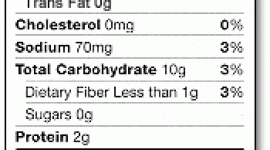Muscle Dysmorphia Diagnostic Criteria
Diagnostic Criteria for Muscle Dysmorphia
- Preoccupation with the idea that one's body is not sufficiently lean and muscular. Characteristic associated behaviors include long hours of lifting weights and excessive attention to diet.
- The preoccupation is manifested by at least two of the following four criteria:
- The individual frequently gives up important social, occupational, or recreational activities because of a compulsive need to maintain his or her workout and diet schedule.
- The individual avoids situations where his or her body is exposed to others, or endures such situations only with marked distress or intense anxiety.
- The preoccupation about the inadequacy of body size or musculature causes clinically significant distress or impairment in social, occupational, or other important areas of functioning.
- The individual continues to work out, diet, or use ergogenic (Performance-enhancing) substances despite knowledge of adverse physical or psychological consequences.
- The primary focus of the preoccupation and behaviors is on being too small or inadequately muscular, as distinguished from fear of being fat as in anorexia nervosa, or a primary preoccupation only with other aspects of appearance as in other forms of body dysmorphic disorder.
Diagnostic Criteria for Anorexia Nervosa (for men)
- Refusal to maintain body weight at or above a minimally normal weight for age and height (e.g., weight loss leading to maintenance of body weight less that 85% if that expected; or failure to make expected weight gain during period of growth, leading to body weight less than 85% of that expected).
- Intense fear of gaining weight or becoming fat, even though underweight.
- Disturbance in the way in which one's body weight or shape is experienced, undue influence of body weight or shape on self-evaluation, or denial of the seriousness of the current low body weight.
 Diagnostic Criteria for Bulimia Nervosa
Diagnostic Criteria for Bulimia Nervosa
- Recurrent episodes of binge eating. An episode of binge eating is characterized by both of the following:
- Eating in discrete period of time (e.g., within an 2-hour period), an amount of food that is definitely larger than most people would eat during a similar period of time and under similar circumstances
- A sense of lack of control over eating during the episode (e.g., a feeling that one cannot stop eating or control what or how much one is eating)
- Recurrent inappropriate compensatory behavior in order to prevent weight gain, such as self-induced vomiting misuse of laxatives, diuretics, enemas, or other medications; fasting, or excessive exercise.
- The binge eating and inappropriate compensatory behaviors both occur, on average, at least twice a week for 3 months. Self-evaluation is unduly influenced by body shape and weight. The disturbance does not occur exclusively during episodes of Anorexia Nervosa.
Diagnostic Criteria for Binge-Eating Disorder
- Recurrent episodes of binge eating. An episode of binge-eating is characterized by both of the following:
- Eating, in a discrete period of time (e.g., within any 2 hour period), an amount of food that is definitely larger than most people would eat in a similar period of time under similar circumstances.
- A sense of lack of control over eating during the episode (e.g., a feeling that one cannot stop eating or control what or how much one is eating)
- The binge-eating episodes are associated with three (or more) of the following:
- Eating much more rapidly than normal
- Eating until feeling uncomfortably full
- Eating large amounts of food when not feeling physically hungry
- Eating alone because of being embarrassed by how much one is eating
- Feeling disgusted with oneself, depressed, or very guilty after overeating
- Marked distress regarding binge eating is present.
- The binge eating occurs, on average, at least 2 days a week for 6 months.
- The binge eating is not associated with the regular use of inappropriate compensatory behaviors (e.g., purging, fasting, excessive exercise) and does not occur exclusively during the course of Anorexia Nervosa or Bulimia Nervosa.
Diagnostic Criteria for Body Dysmorphic Disorder
- Preoccupation with an imagined defect in appearance. If a slight physical anomaly is present, the person's concern is markedly excessive.
- The preoccupation causes clinically significant distress or impairment in social, occupational, or other important areas of functioning.
- The preoccupation is not better accounted for by another mental disorder (e.g., dissatisfaction with body shape and size in Anorexia Nervosa).
next: Eating Disorders: Muscle Dysmorphia in Men
~ eating disorders library
~ all articles on eating disorders
APA Reference
Tracy, N.
(2008, December 13). Muscle Dysmorphia Diagnostic Criteria, HealthyPlace. Retrieved
on 2026, March 5 from https://www.healthyplace.com/eating-disorders/articles/eating-disorders-muscle-dysmorphia-diagnosis
Last Updated: January 14, 2014



